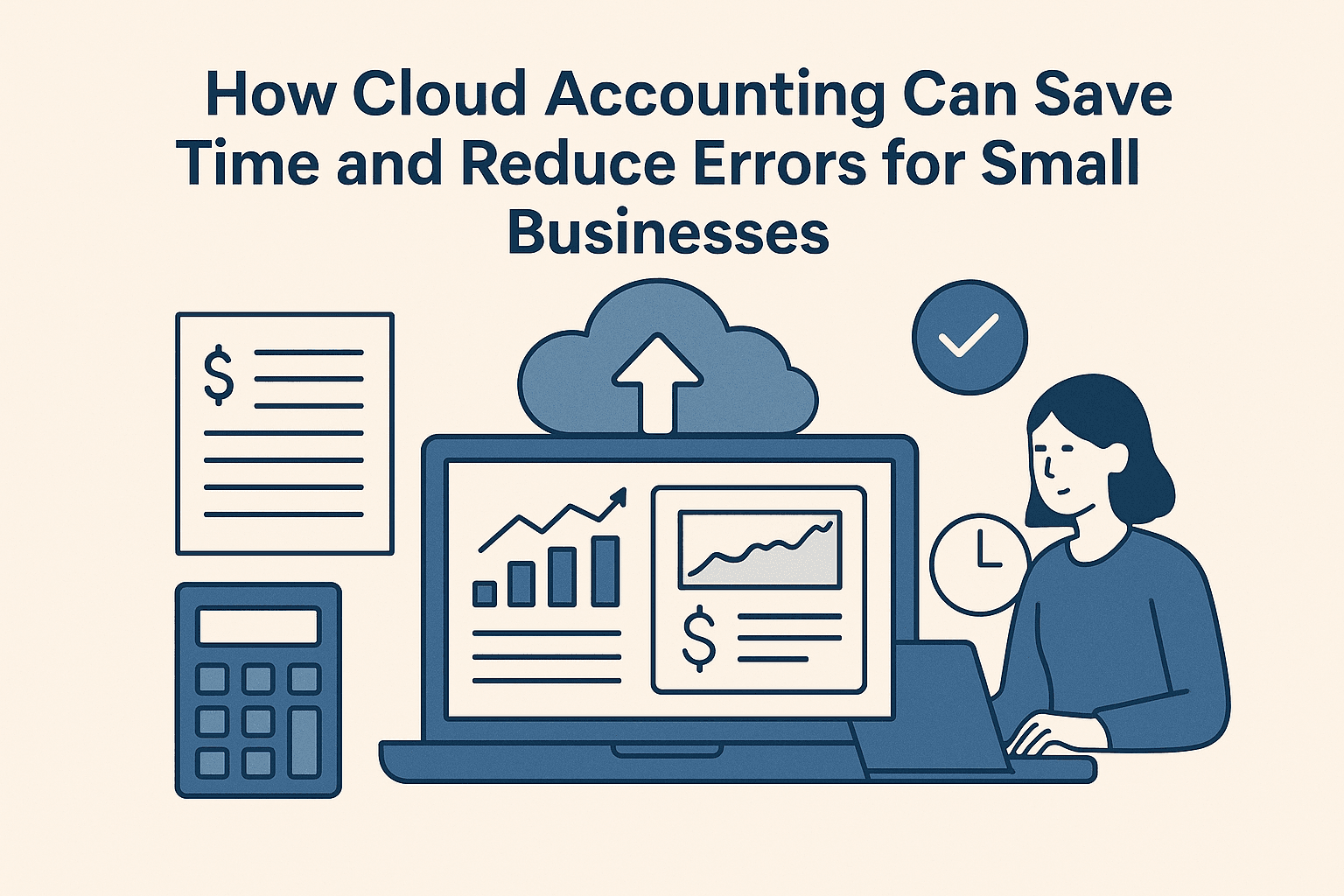For many small business owners, bookkeeping can be one of the most time-consuming and stressful aspects of running a company. Traditional accounting methods — often involving spreadsheets or paper records — leave plenty of room for human error and can make staying on top of finances a constant challenge. Cloud accounting offers a modern, efficient alternative that not only streamlines your processes but also helps you maintain accuracy and compliance.
1. Access Your Finances Anywhere, Anytime
With cloud accounting software, your financial data is stored securely online, meaning you can access it from any device with an internet connection. Whether you’re in the office, working from home, or travelling, you can check cash flow, update records, and send invoices without being tied to a single computer. This flexibility saves time and allows for more responsive decision-making.
2. Automating Repetitive Tasks
Cloud accounting systems can automate many of the routine tasks that take up hours each month. Features such as bank feeds, recurring invoices, and automatic payment reminders reduce the need for manual entry, freeing up time to focus on running and growing your business. By cutting down on repetitive work, you also lower the risk of mistakes creeping into your records.
3. Reducing Human Error
Manual bookkeeping often involves transferring figures between systems or reconciling records by hand, which increases the risk of errors. Cloud platforms minimise this by pulling data directly from bank accounts and integrating with payment systems. This automation not only saves time but also ensures the accuracy of your financial information, which is crucial for tax returns and compliance.
4. Real-Time Financial Insights
One of the biggest advantages of cloud accounting is real-time reporting. Instead of waiting for month-end to see how your business is performing, you can track income, expenses, and cash flow instantly. This allows you to spot issues early, seize opportunities, and make informed decisions without delay.
5. Enhanced Collaboration
Cloud accounting makes it easier to work with your bookkeeper or accountant. They can securely access your financial data at any time, allowing for quicker responses to queries and more proactive advice. This shared access eliminates the need to send files back and forth and ensures everyone is working from the same up-to-date information.
6. Improved Data Security
Unlike physical files or data stored on a single computer, cloud accounting platforms use encrypted servers and secure backups to protect your information. In the event of hardware failure or loss, your financial data remains safe and accessible. Many providers also offer multi-factor authentication for an added layer of protection.
Conclusion: A Smarter Way to Manage Your Finances
For small businesses, time and accuracy are invaluable. Cloud accounting delivers both by automating processes, improving collaboration, and providing real-time insights into your finances. By making the switch, you not only reduce the risk of costly mistakes but also free up valuable hours to focus on what you do best — growing your business.




